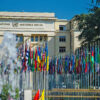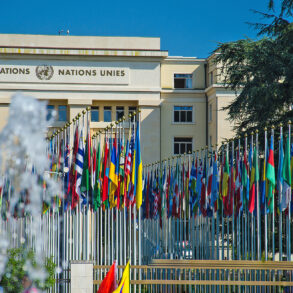Silaturahmi (arab. sila rahmi) is an important religious practice in Indonesia. It is based on the teachings of Allah and the Prophet Muhammad, Allah bless him and grant him peace, about maintaining or mending ties between relatives. Several verses from the Quran can be used to better understand the concept of silaturahmi. For example, “O mankind! Be dutiful to your Lord, Who created you from a single person (Adam), and from him (Adam) He created his consort (Hawwa, Eve), and from them both He created many men and women, and fear Allah, by Whom you claim your mutual (rights) and (do not curtail the relations) of womb (kinship). Surely Allah is ever an All-guardian over you” (Al-Ma’ida, Sura 4:1). Another verse reads, “Would you then, if you had authority, do mischief in the land and sever your ties of kinship?” (Muhammad, Sura 47, 22).
Various hadiths can also be quoted to support the meaning of their importance. For example, “Whoever believes in Allah and the Last Day should be hospitable to his guest; and whoever believes in Allah and the Last Day should maintain his ties of kinship; and whoever believes in Allah and the Last Day should speak well or keep silent“ (Bukhari).
Through my several years of research in Indonesia, I have found that the use of silaturahmi in Indonesia has unique components, which I will describe in more detail here. Furthermore, the concept is known everywhere in the Indonesian Muslim community and in non-Muslim communities in Indonesia, and the word is used in everyday speech. Visiting friends, family members or teachers, for example, is often referred to as silaturahmi, not just visiting (ind. berkunjung). This also shows that the term in Indonesia refers not only to immediate family, but also to non-relative relationships.
During my research, I found that silaturahmi consists of two levels: it is both a practice and an intention (arab. niyya). It can be said that without the intention to practice silaturahmi, acts of visiting (which can include phone calls, emails, etc.) are not considered silaturahmi. Moreover, there needs to be a person who comes to visit as well as a person who receives the visit.
In the Indonesian context, we can thus understand silaturahmi as a religiously motivated form of social interaction. Through it, relationships are consciously or unconsciously maintained at various geographical and social levels, including kinship, educational, economic and religious relationships. Further, silaturahmi is also intentional and can serve as a religious motivation and reminder. Silaturahmi means “to connect people.”
An annual religious event often associated with silaturahmi is Halal Bi Halal during the Islamic month of Shawwal after the end of Ramadan. During Halal Bi Halal, different communities gather to listen to a religious lecture and eat together. This can take place in a village, a neighbourhood or among members of the same political party, religious circle, university or school. An important element of these events is to ask forgiveness from each other. Furthermore, silaturahmi is also used for official purposes. For example, for organisations that want to connect and bring their members together.
The Indonesian Mosque Al-Falah and the Indonesian restaurant Nusantara in Berlin (Germany) are also places where ⁄ is practised. For example, the very first place Irfan and Ilham, two former master’s students, visited in Berlin was the Indonesian mosque Al-Falah. Practising silaturahmi and meeting other Indonesians, they explained, would make their stay in Berlin easier and bring about Allah’s blessings. Even at the annual food festival Sate Somay organised by the Indonesian mosque in Berlin, silaturahmi plays a hugely important role. The main purpose of this annual Indonesian food festival in Berlin, besides collecting donations, is silaturahmi. This multi-religious and multi-ethnic event brings together Indonesians and non-Indonesians from all parts of Germany.
Furthermore, a former committee member of the mosque explained that silaturahmi is one of the main contributions of the Indonesian Mosque members to German society. He further explained that Indonesian Muslims practice silaturahmi to avoid conflicts and to invite people to get to know Indonesians and Islam. In this sense, silaturahmi extends beyond Islam and Muslims to the whole society. These examples show that Islamic concept, as understood and practised by Indonesian Muslims, has the potential to contribute to a more harmonious society. It also has the potential for spiritual transformation in a person, because the practice of silaturahmi brings different people together: Opinions are exchanged and food for thought is given.
Furthermore, I believe that silaturahmi, as it is understood in Indonesia, has a diplomatic component and thus can also contribute positively to diplomacy. The use of this concept in diplomacy between Muslim-majority states can strengthen the idea of understanding the Muslim community as one unit and one family, regardless of national affiliation. In relation to the Muslim community, we can further specify that all countries with a Muslim population can be considered as belonging to one Muslim family.
But the framework can also be broadened irrespective of religion. In Indonesia, the concept of silaturahmi is also used inter-religiously. Thus, we can consider all countries as belonging to the family of humanity and apply the Muslim concept.
In conclusion, silaturahmi in its localised form is unique to Indonesia. Although based on a hadith, the practice, use and meaning in everyday language is unique to Indonesian. This is facilitated by the social reality of Indonesian societies, which place a strong focus more on community than the individual.











